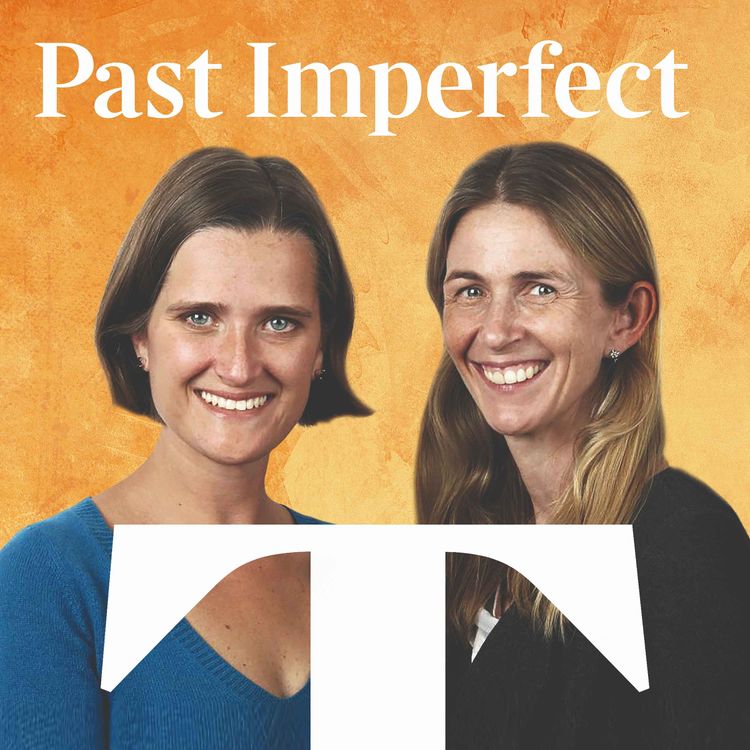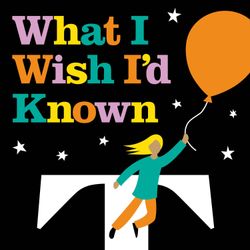Share

What I Wish I'd Known
Professor John Bell
Rachel and Alice talk to Professor John Bell, Regius professor of Medicine at Oxford University. His first memory, he says, was looking up and seeing “a load of guys with white coats around me”. He’d contracted polio and his father, had also caught the disease and was critically ill in the same hospital.
“People forget about polio,” he says, but Professor Bell never did, always concerned that another disease may sweep across the world.
Now, more than 70 years later, he is known for helping secure a covid vaccine and advising the government on how to lead Britain out of the pandemic. His research teams are also on the brink of major breakthroughs in the fight against cancer.
Links for additional support (also on Past Imperfect podcast pages)
Polio information and support
Polio - Eradication, Vaccination, & Access | Bill & Melinda Gates Foundation
Polio Survivors Network – Lives lived with healthcare lessons for the future
Cancer Support
https://www.cancerresearchuk.org/
More episodes
View all episodes

6. Cressida Cowell
29:39||Season 8, Ep. 6In this episode, Alice Thomson and Rachel Sylvester speak to children's book author and illustrator Cressida Cowell known for the How to Train Your Dragon, The Wizards of Once and Which Way to Anywhere book series. She was the Waterstones Children’s Laureate from 2019 – 2022.
5. James Cleverly
39:14||Season 8, Ep. 5In this episode, Alice Thomson and Rachel Sylvester speak to James Cleverly, Secretary of State for the Home Department, about his childhood as a young black man growing up in South East London and how the racism he encountered then is different to the situation now.Producer: Florence de Schlichting
4. Rachel Reeves
39:38||Season 8, Ep. 4In this episode, Rachel Reeves, Shadow Chancellor of the Exchequer, tells us about how her childhood and passion for chess have shaped her identity as a woman within male dominated environments. Producer: Florence de Schlichting
3. Arlene Phillips
32:35||Season 8, Ep. 3“And when I went into the church hall, every little girl, every single one, was in pink ballet shoes. And I walked in with my green ballet shoes, which were half price in the sale. And I did want to run back out through those great big double doors. But I knew if I did I would never get to dance.” In this episode we speak to Arlene Phillips, who tells us about her difficult childhood and her resilience in pursuing her passion for dance until today, most recently rewarded with the Laurence Olivier Award for Best Theatre Choreographer in Guys & Dolls.Producer: Florence de Schlichting
2. Ashley John-Baptiste
24:56||Season 8, Ep. 2In this episode we talk to BBC broadcaster and presenter Ashley John-Baptiste about his significant achievements, despite having suffered childhood trauma from his upbringing in foster care.Producer: Florence de Schlichting
1. Sharon Stone
30:44||Season 8, Ep. 1"People don't want you to be able to see anything, report anything, or say anything intelligent. You just have to be an object of beauty." In this episode, Hollywood legend Sharon Stone talks to us about her new career as a painter and how it helped her address childhood traumas. We also discuss her difficult relationship with Hollywood, and the abuse she encountered from men around her since becoming a sex symbol.WARNING: contains very strong languageProducer: Florence de Schlichting
1. Series 8 - COMING SOON...
01:28||Season 8, Ep. 1Times Journalists Rachel Sylvester and Alice Thomson return to talk to more extraordinary people about how their past has shaped their lives and how their childhoods have defined who they are today.In this series they are joined by the likes of Sharon Stone, Arlene Phillips, Rachel Reeves and many more.This podcast has been produced in association with Speakers for Schools: www.speakersforschools.orgSeries Producer: Florence de Schlichting
12. David Blunkett
59:29||Season 7, Ep. 12“Your life is built on the way you do things and the way people see you and the way you react”. The former Home Secretary, David Blunkett, says he is unsure whether he would choose the ability to see if he could. Born blind, David has come to know and embrace life without sight. But his start to life was fraught with pain; as a child he had to cope with the traumatic death of his father all whilst attending a strict school for the blind, where caning was a regular occurrence. “If you think about caning a child on their hand, when their hands are used for braille reading… it was like throwing salt in your eyes.”Series producer: Anya PearceProducer: Calum McCrae
11. Steve Backshall
52:11||Season 7, Ep. 11“I felt uncomfortable with my passions and with my life at school,” says Steve Backshall. The naturalist has wowed British children for years with shows such as Deadly 60, but his own childhood discomfort with his passion for nature is a lasting regret. He feels at home around animals in their natural habitat and despite coming face to face with the largest and deadliest creatures on the planet, Steve insists he is not driven by adrenaline seeking; “I certainly feel more intimidated and more at risk in the big city, than I ever do in the rainforest.”Series producer: Anya PearceProducer: Calum McCrae